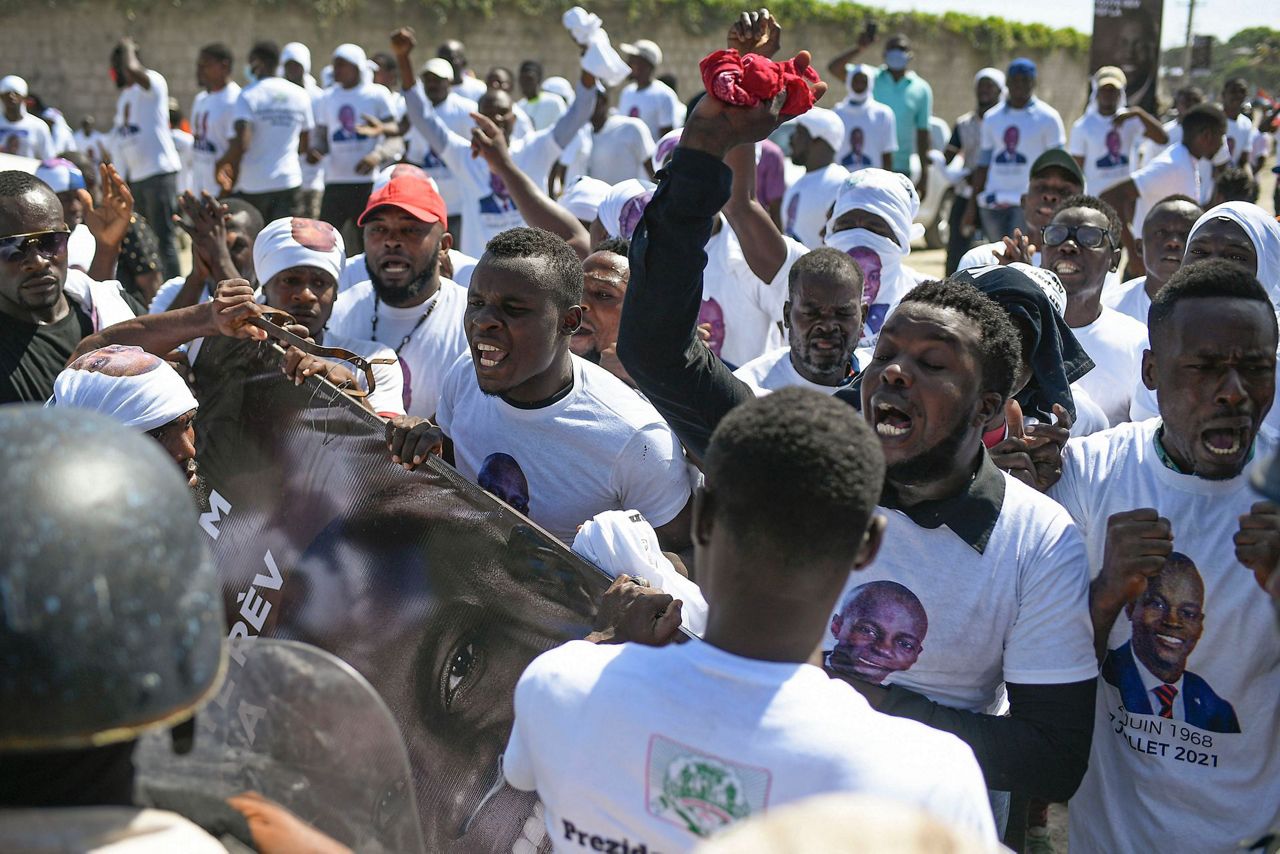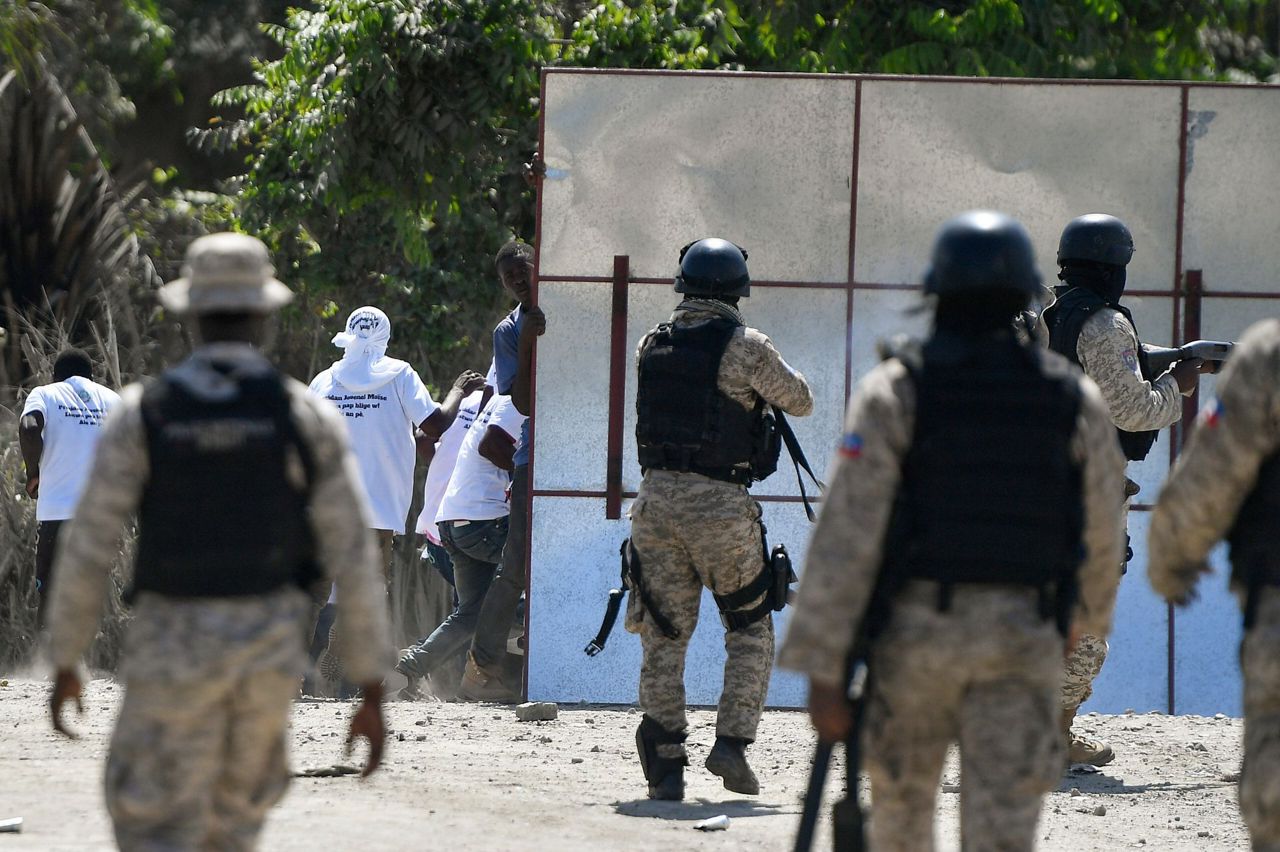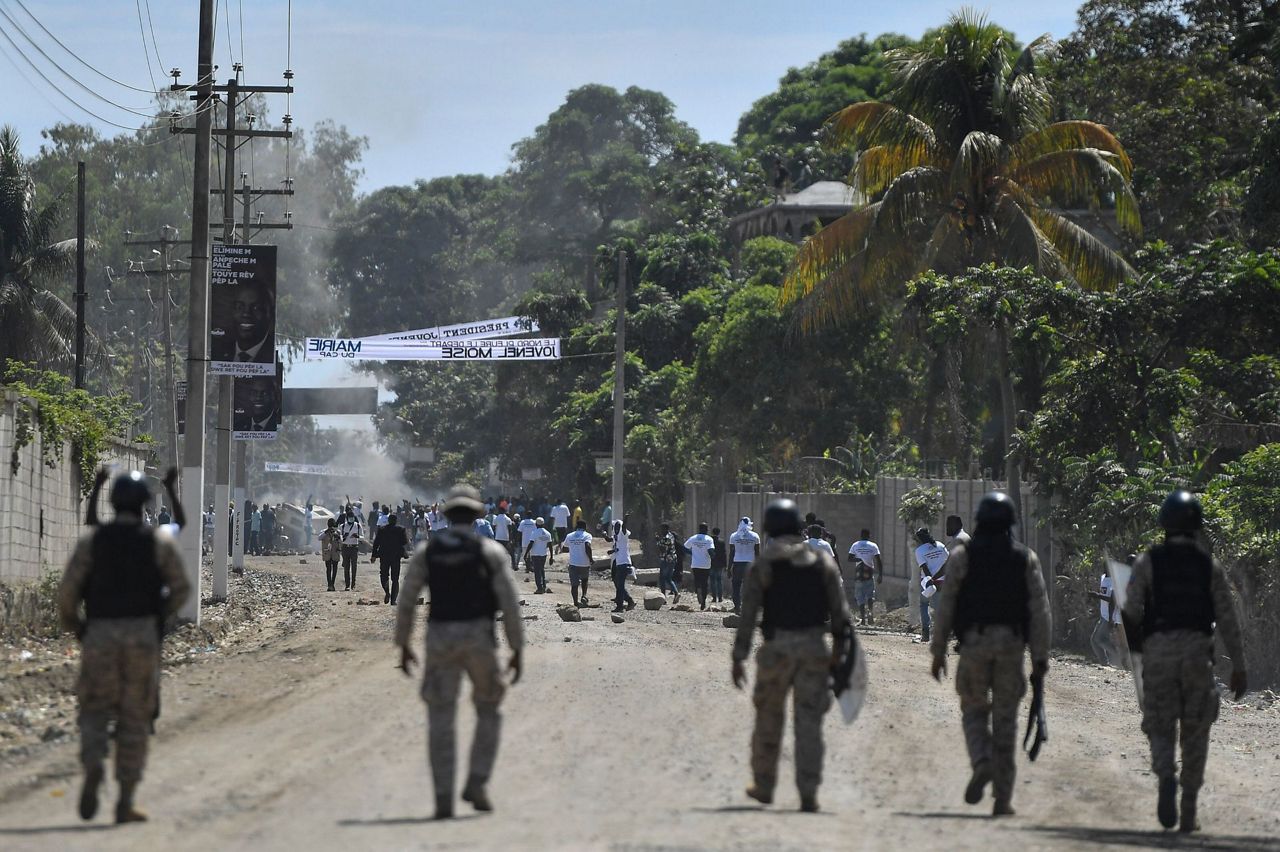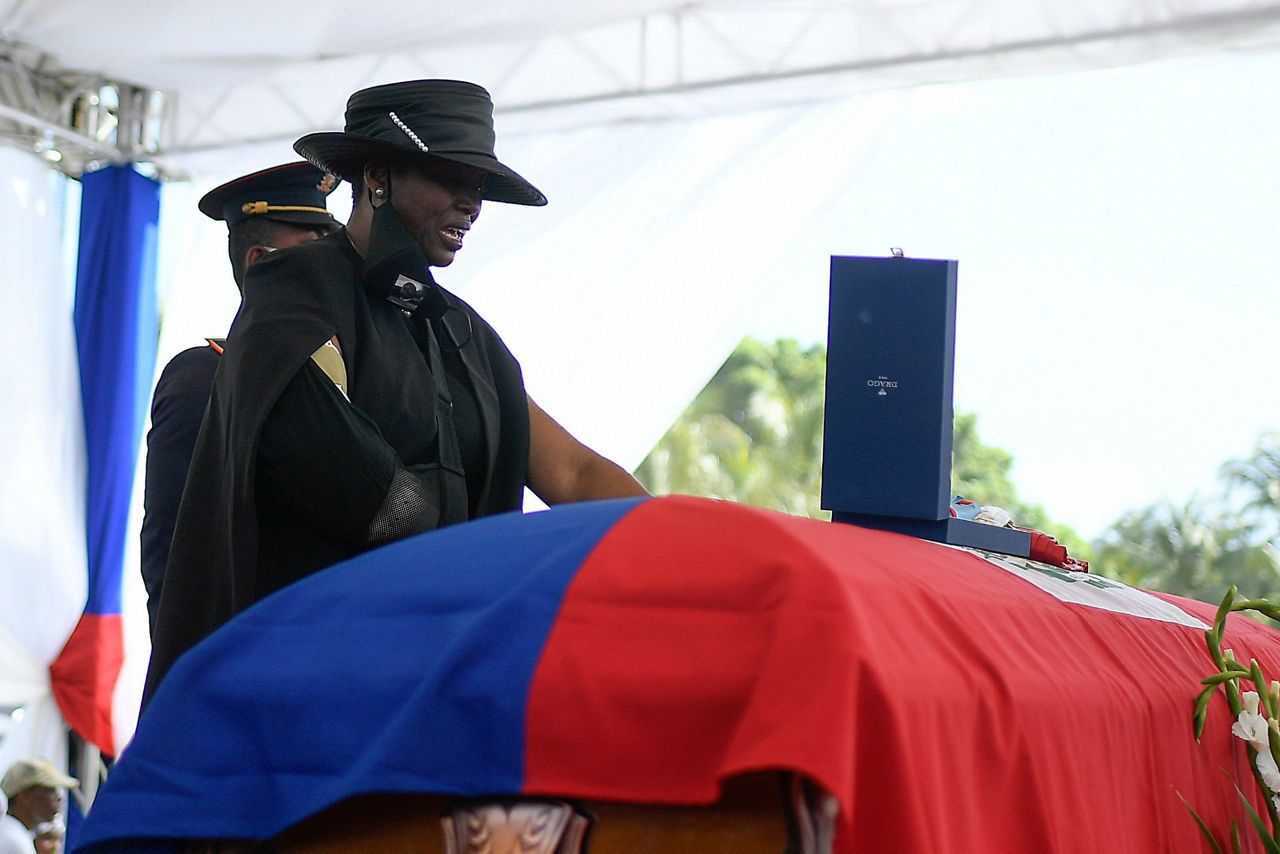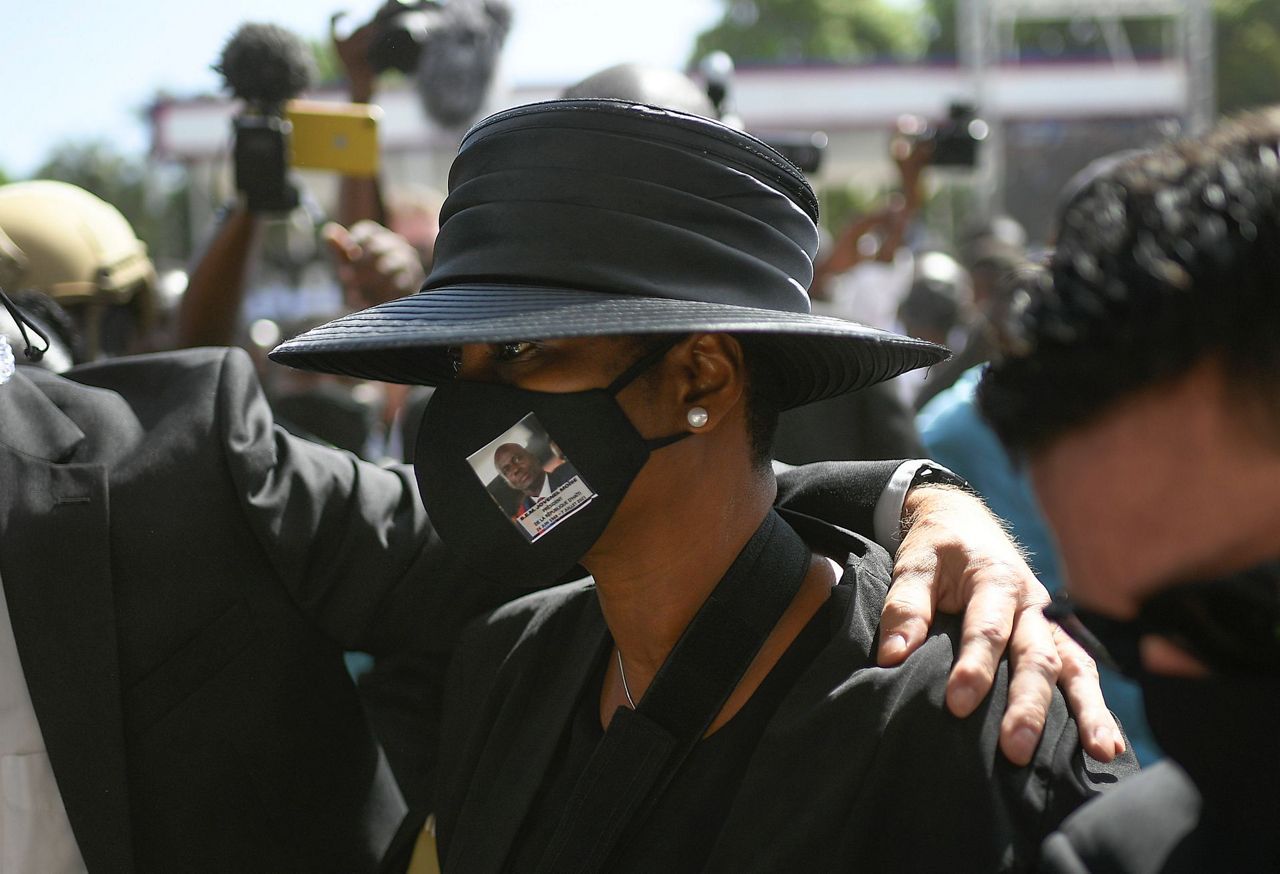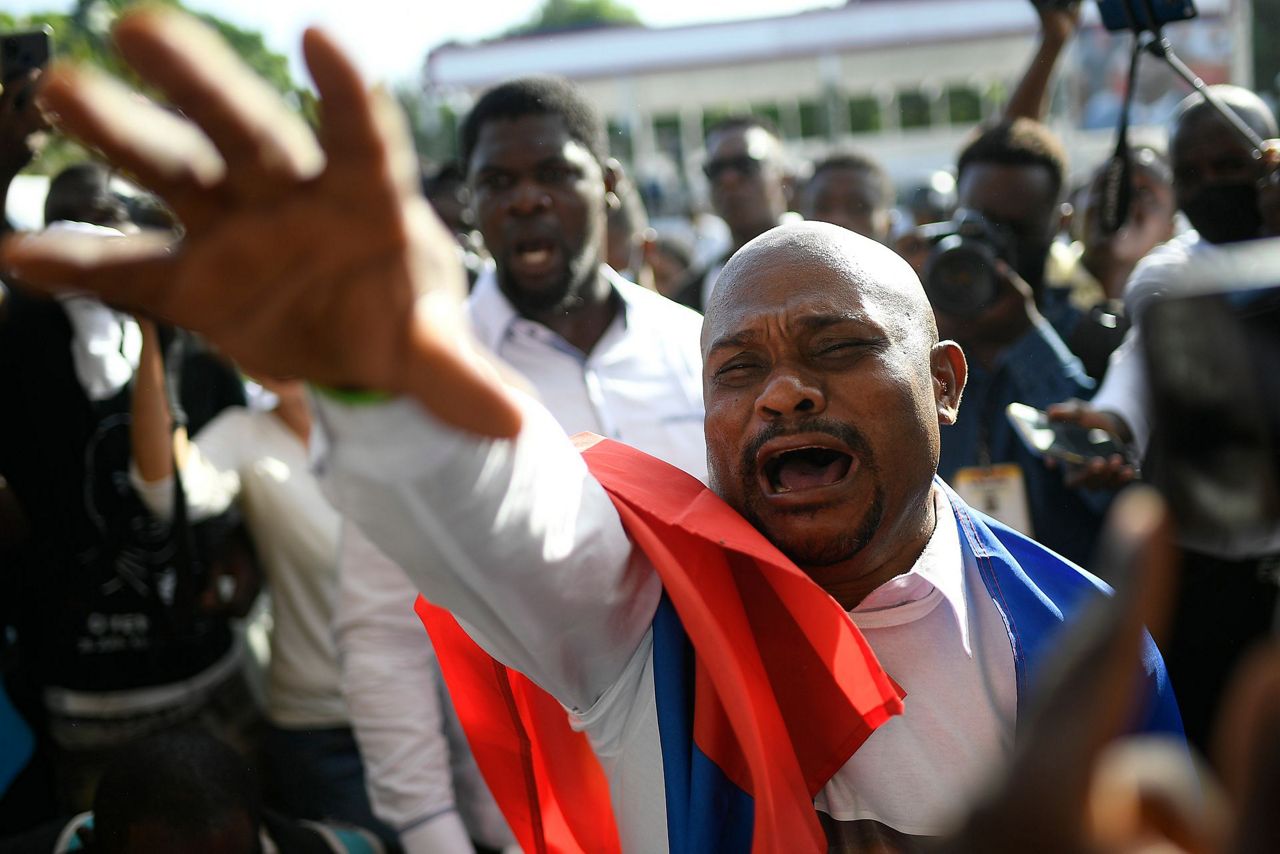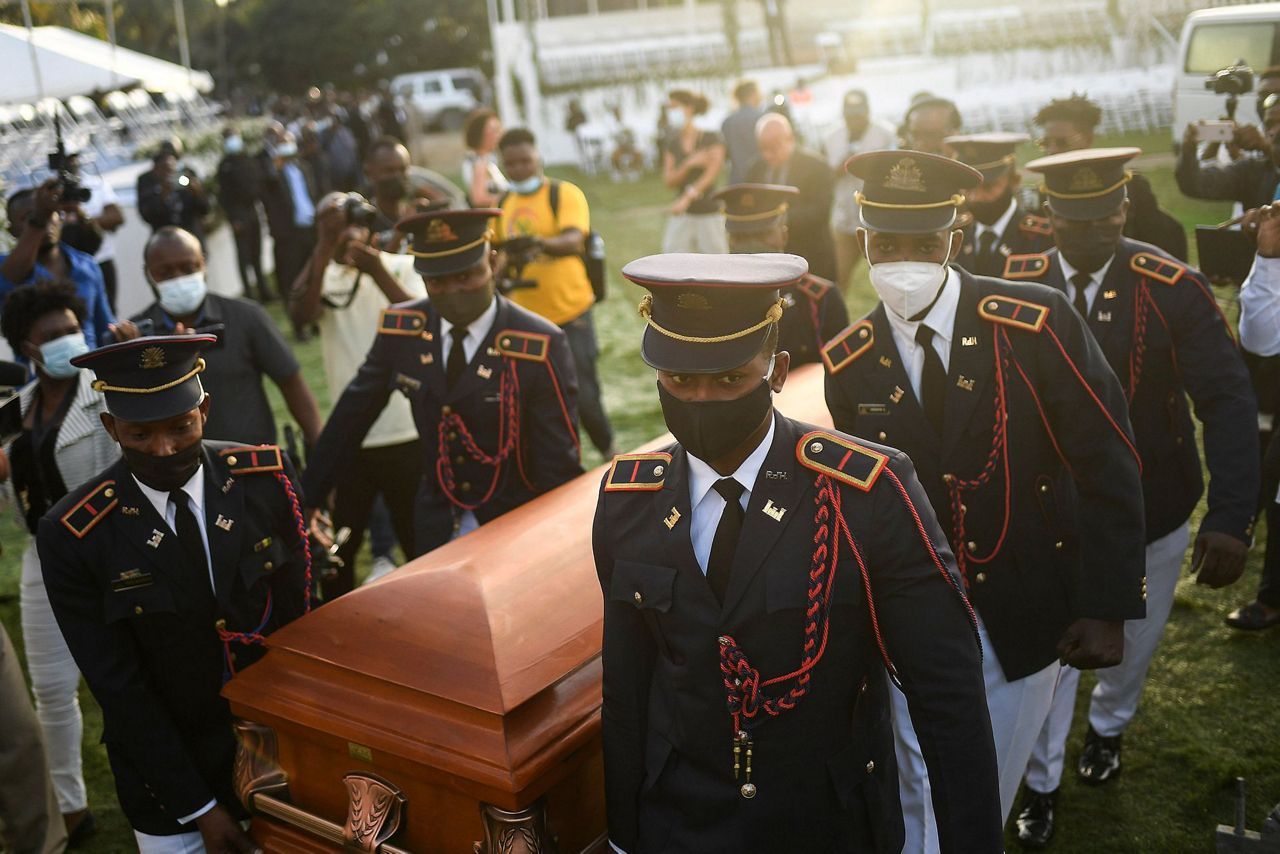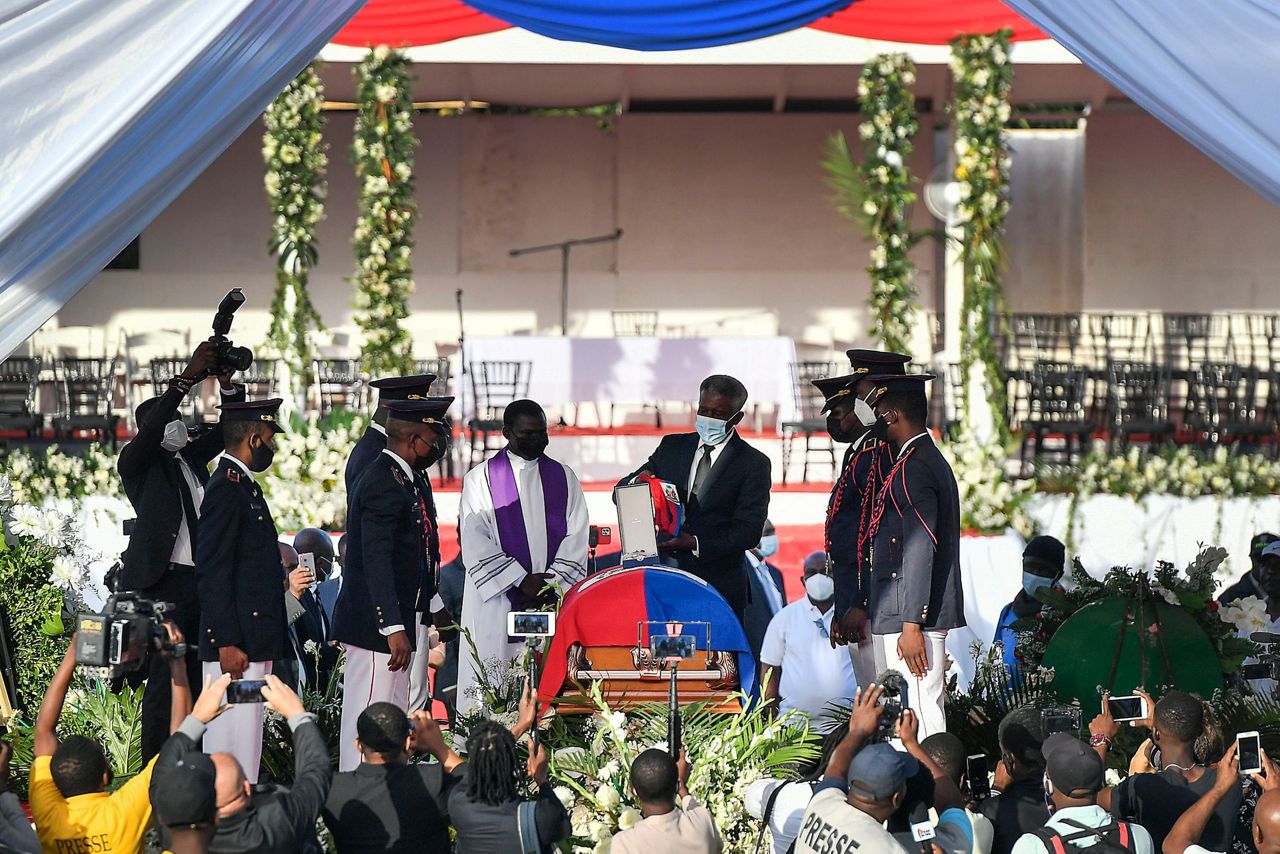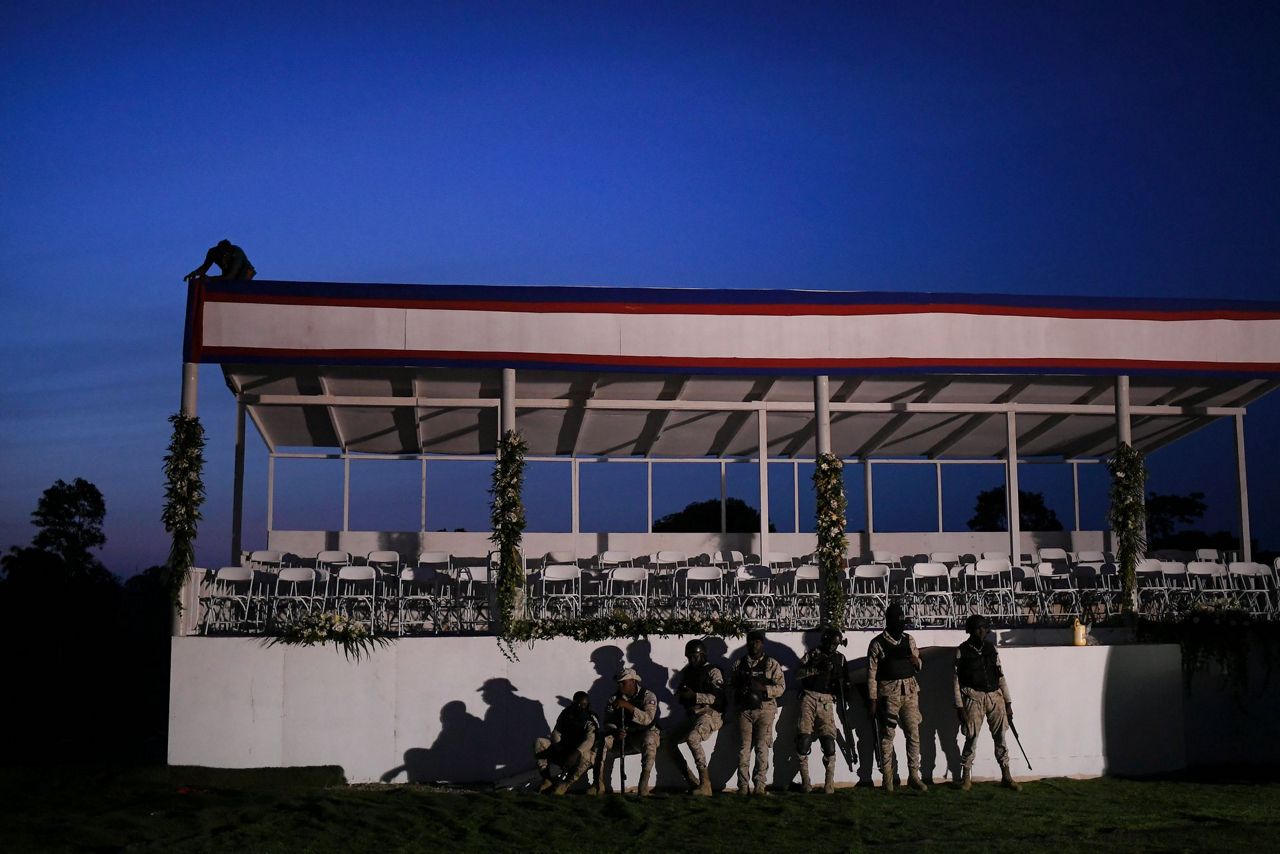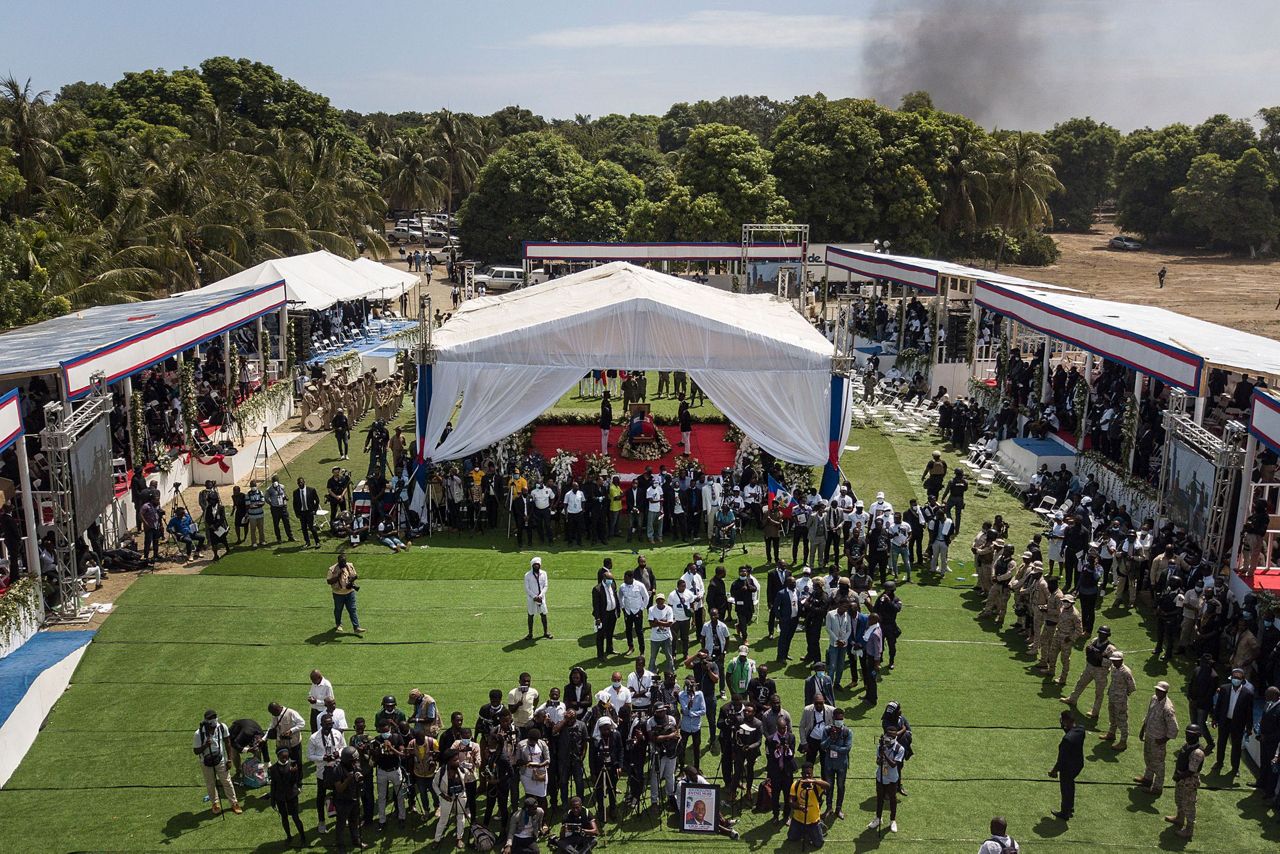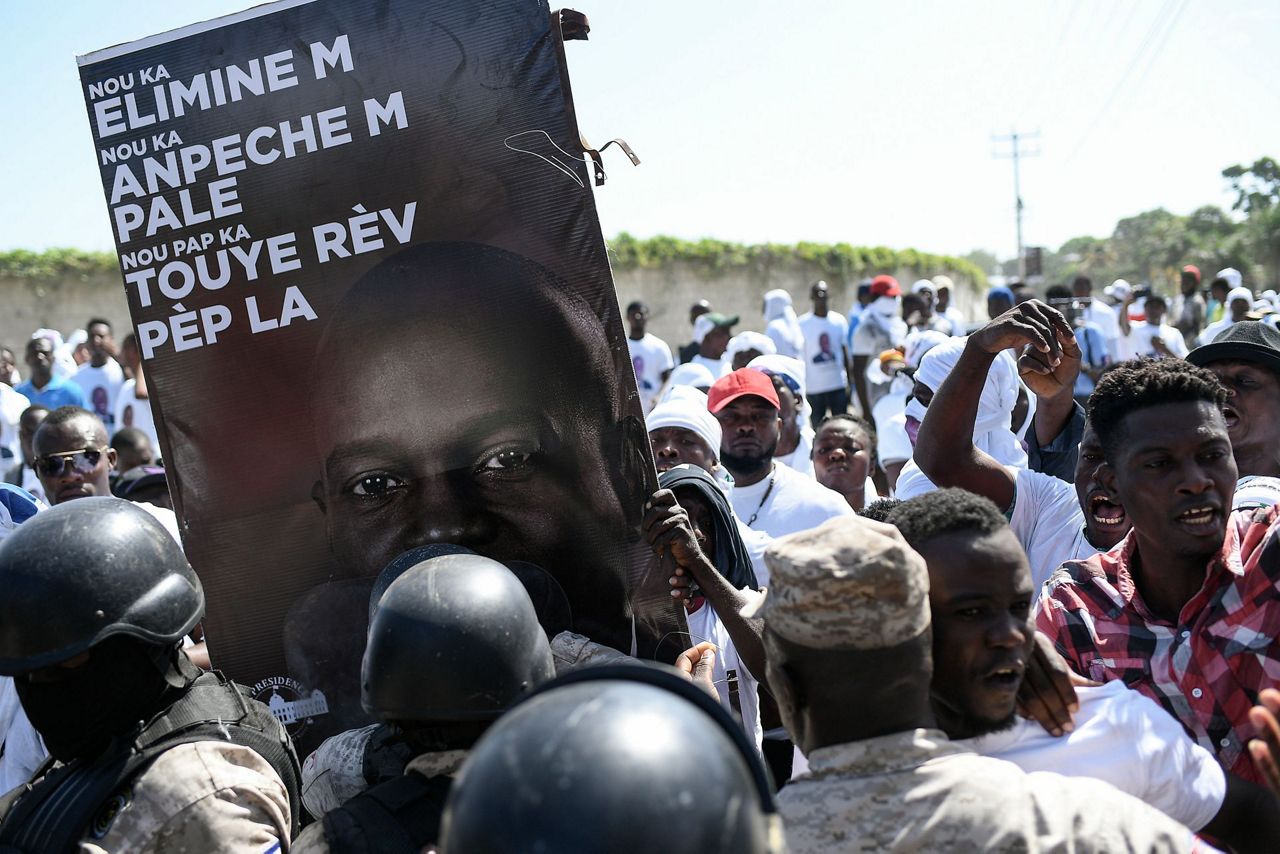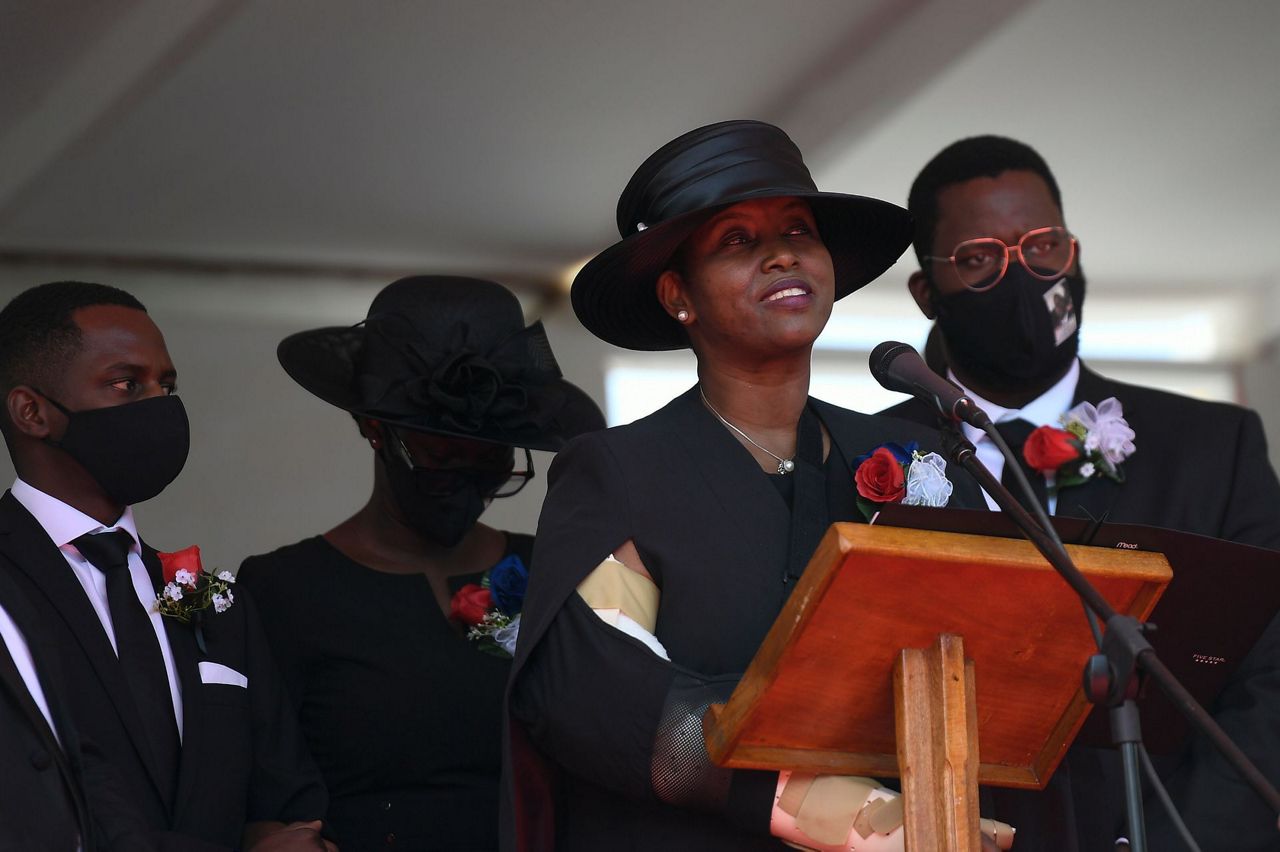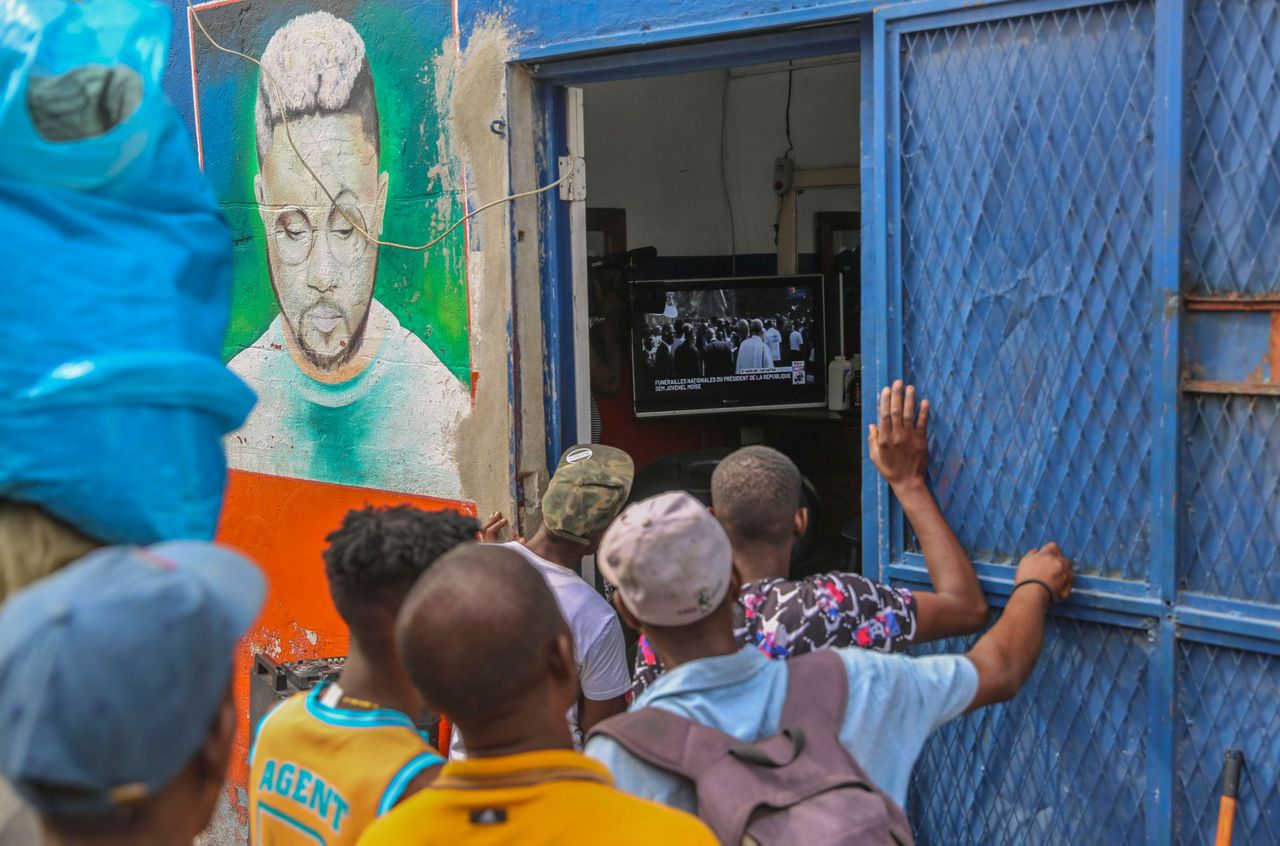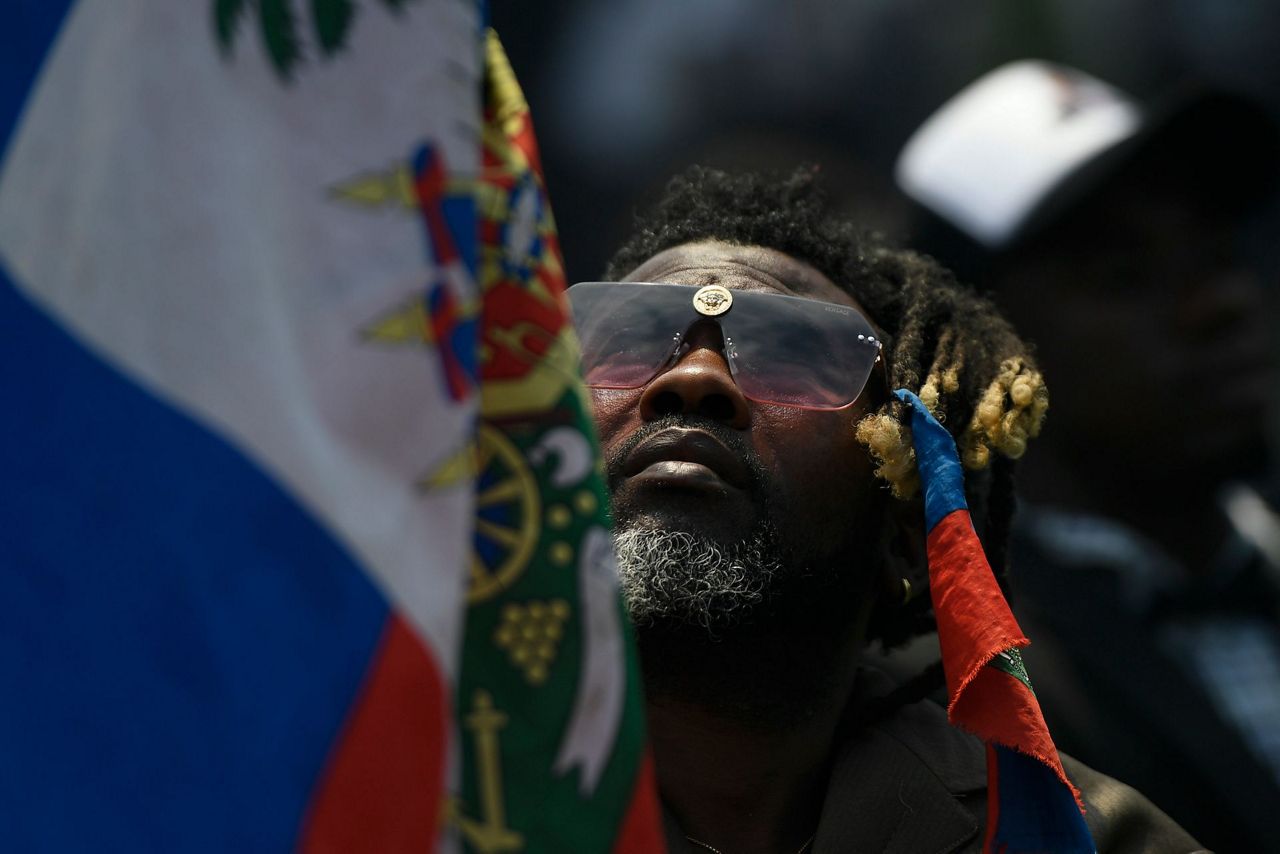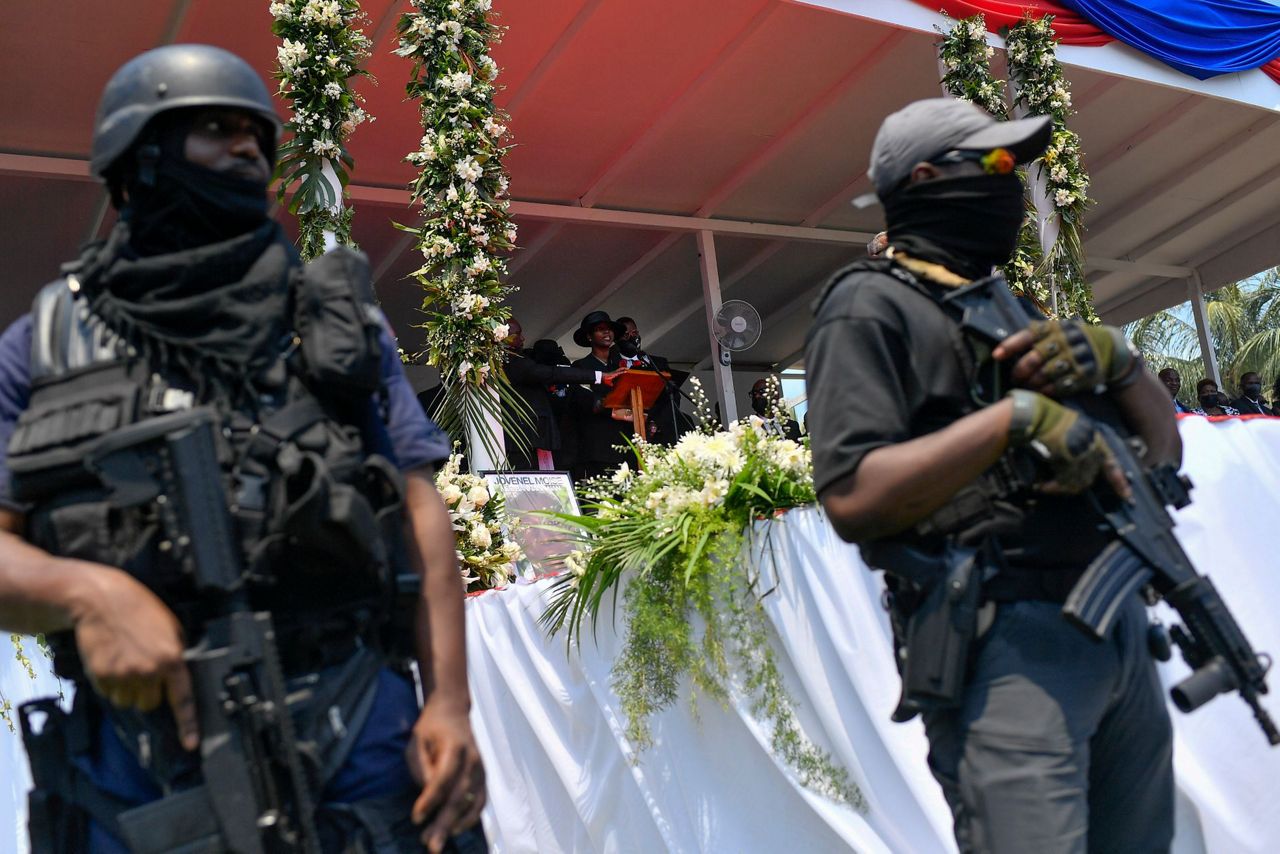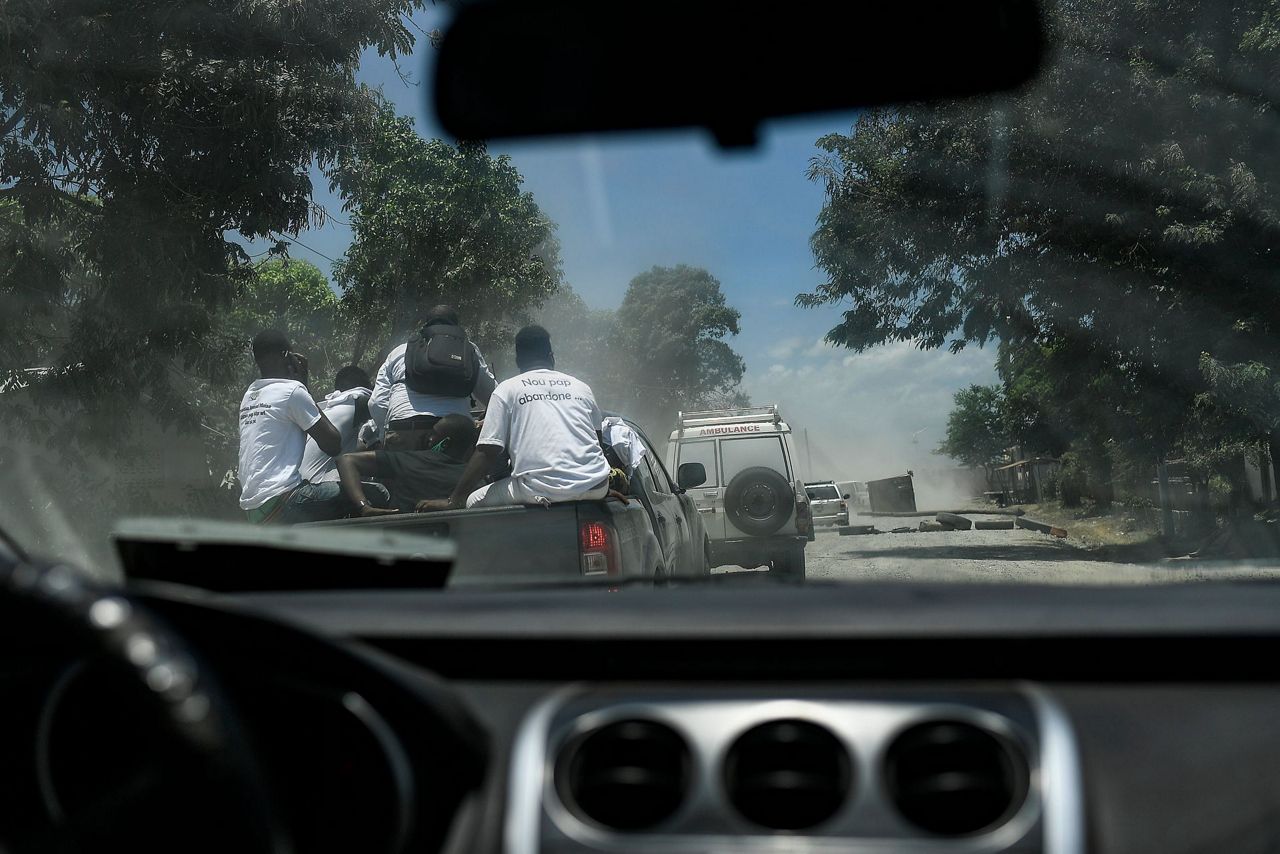CAP-HAITIEN, Haiti (AP) — The funeral for slain Haitian President Jovenel Moïse was briefly interrupted Friday by nearby gunfire and tear gas as well as agitated supporters that caused U.S. and U.N. officials to leave before his widow spoke publicly for the first time since the attack.
Hundreds of protesters gathered outside the private compound where Moïse's funeral was held as some mourners inside shouted, “Justice for Jovenel!” and cheered when Martine Moïse, who was seriously injured in the July 7 attack at the couple's private home, rose to the podium at the end of the ceremony.
"They’re watching us, waiting for us to be afraid,” she said. “We don’t want vengeance or violence. We’re not going to be scared.”
Smoke and ash from burning barricades that demonstrators set up around the compound, along with tear gas fired by police, blew through the ceremony as Martine Moïse and others spoke.
Her soft voice grew stronger through the 15-minute speech as she thanked the crowd for their support and said those responsible would not assassinate Jovenel Moïse's vision, ideas or dreams for Haiti.
“We lost a fight, but we did not lose the war,” she said as she condemned the country's oligarchs and suggested that Moïse was killed in his pursuit to provide electricity, build roads and make a better life for poor people. She later addressed his killers: “They are here looking at us. They are not even hiding.”
The funeral was held amid heavy security following violent protests and fears of political volatility in the Caribbean nation.
Before the funeral began, cries of “Assassin!” filled the air at the arrival of Haiti’s National Police Chief León Charles. Haitians clad in somber suits, shiny shoes and black and white formal dresses shouted and pointed fingers at the neighboring seating platforms where Haitian officials and foreign dignitaries sat above at least a dozen men with high-powered weapons.
“You didn’t take any measures to save Jovenel! You contributed to his killing!” one woman yelled.
On the grounds below, one Moïse supporter threatened Charles: “You need to leave now or we’re going to get you after the funeral!”
Yves Paul Leandre, spokesman for Haiti's Communications Ministry, told The Associated Press that the U.S. and United Nations delegations left about 10 to 15 minutes after arriving due to hostile words that Moïse supporters inside the compound hurled at everyone arriving.
Two U.S. officials confirmed there was an incident at the event and that the U.S. delegation left early. All members of the U.S. delegation were safe and accounted for and it does not appear they were targeted, according to the officials, who were not authorized to discuss the matter publicly and spoke on condition of anonymity.
Shortly before the funeral began, Martine Moïse arrived to cries of “Justice! Justice!” as she headed straight to her husband’s casket, climbing the stairs and stopping in front of it. With her right arm in a sling, she lay her left arm on the casket draped with a large Haitian flag and then brought it to her heart as she stood there in silence. Her eyes filled with tears as her three children joined her.
Minutes later, a group of supporters grabbed a large portrait of Moïse and paraded with it as the police band began to play the national anthem over loud wails.
White T-shirts and caps emblazoned with Moïse's picture were distributed to supporters the day before the final ceremony to honor Moïse.
“This is something that will be engraved in our memory,” said Pedro Guilloume, a Cap-Haitien resident. “Let all Haitians channel solidarity.”
Before the funeral began, a man wrapped himself in a large Haitian flag and approached the casket, crying out, “We need to fight and get justice for Jovenel!” Next to him, a man carrying a T-shirt commemorating Moïse joined in as he yelled, “Jovenel died big! He died for me and for the rest of the country…We’re not going to back down.”
Once the funeral ended, protesters threw rocks at a caravan of Haitian authorities and journalists that were leaving.
The funeral comes days after Prime Minister Ariel Henry, with support from key international diplomats, was installed in Haiti — a move that appeared aimed at averting a leadership struggle following Moïse's assassination.
Henry, who was designated prime minister by Moïse before he was slain but never sworn in, replaced interim prime minister Claude Joseph and has promised to form a provisional consensus government until elections are held.
On Wednesday and Thursday, violent demonstrations hit neighborhoods in and around Cap-Haitien as groups of men fired shots into the air and blocked some roads with blazing tires. One heavily guarded police convoy carrying unknown officials drove through one flaming barricade, with a vehicle nearly flipping over.
A priest who presided over a Thursday Mass at Cap-Haitien’s cathedral to honor Moïse warned there was too much bloodshed in Haiti as he asked people to find peace, noting that the poorest communities are affected.
Moïse was sworn in as Haiti’s president in February 2017 and faced increasing criticism in recent years from those who accused him of becoming increasingly authoritarian. He had been ruling by decree for more than a year after the country failed to hold legislative elections.
Authorities have said that at least 26 suspects have been arrested in the killing, including 18 former Colombian soldiers. Police are still looking for several more suspects they say were involved in the assassination plot, including a former rebel leader and an ex-senator.
__
AP writers Evens Sanon in Cap-Haitien, Haiti and Matthew Lee in Washington contributed to this report.
Copyright 2021 The Associated Press. All rights reserved. This material may not be published, broadcast, rewritten or redistributed without permission.



